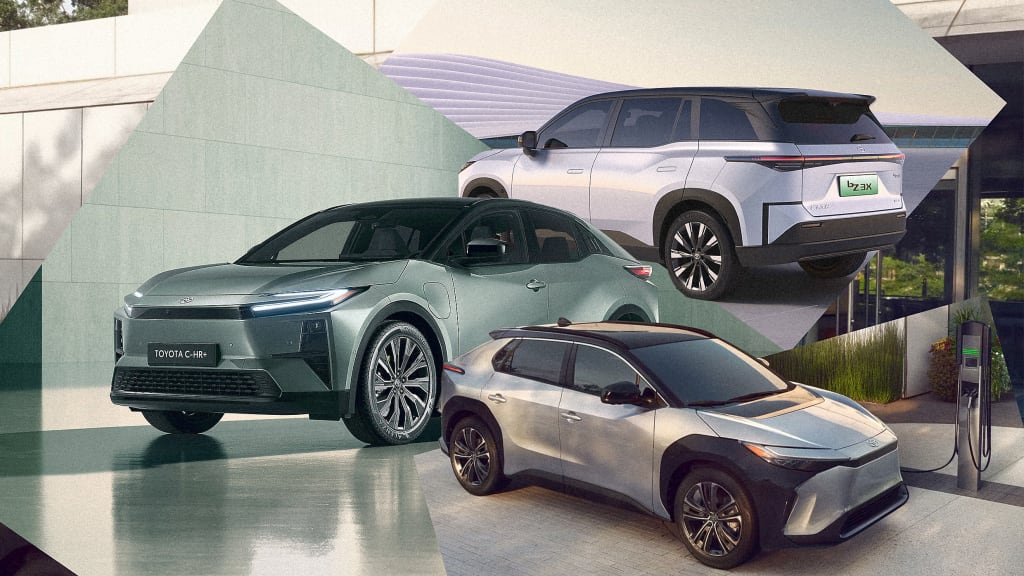The electric vehicle (EV) landscape is shifting quickly, and Toyota is ready to dive right in. With an eye on the future, the automaker has set ambitious plans. Within the next three years, Toyota aims to introduce 10 new EV models, signaling a big shift from their hybrid focus.
This strategic move comes as no surprise, given the global trends favoring environmental consciousness and the growth of the EV market, especially in places like China. But why now? Toyota seems to have read the room and is finally stepping up its game, aiming to make a significant impact in the EV sector.
A Strategic Shift from Hybrids to EVs
For years, Toyota was synonymous with hybrid technology, leading the market with its Prius. But now, as the tide turns towards fully electric vehicles, the company is pivoting its strategy. By 2028, Toyota plans to launch 15 EV models, a substantial leap from its current five.
This shift isn’t entirely unanticipated. With EV sales skyrocketing in markets like China, Toyota is tapping into this trend to bolster its global presence. The aim? A more diversified portfolio that speaks to today’s eco-consumers and tomorrow’s environmental standards.
Global Production Plans
Toyota’s new electric lineup won’t just roll out from Japan. Production is strategically spread across the globe, with facilities in Japan, China, North America, and Southeast Asia all set to contribute.
By harnessing its global manufacturing capabilities, Toyota ensures a steady supply of vehicles to meet varying regional demands. This evidently reflects a well-thought-out plan to cement its presence in the competitive EV market.
Moreover, new production sites in Thailand and Argentina are set to expand Toyota’s reach. By spreading its manufacturing footprint, Toyota is clearly aiming for efficiency and a robust supply chain.
Ambitious Production Targets
Toyota has bold ambitions to ramp up EV production. Plans are underway to manufacture 1 million EVs by 2028, which is a staggering increase compared to its current output.
This target, if achieved, would see EVs make up 35% of Toyota’s total production, a massive chunk compared to the mere 2% they represent now. It’s clear that Toyota isn’t just dabbling in the EV market; instead, it’s making a resolute push to be a major player.
Current EV Portfolio
Presently, Toyota offers a limited range of EVs, with bZ4X and Lexus RZ as the key models in the U.S.
While hybrids still dominate their lineup, Toyota’s new strategy could alter this balance drastically.
As the lineup expands, more adventurous options will likely attract customers seeking style and sustainability.
Market Challenges and Opportunities
Despite a promising outlook, Toyota faces an uphill battle to catch up with leaders like Tesla and BYD, who have far wider market shares.
The stakes are high, but so are the potential rewards. Successfully executing its strategy could see Toyota tap into the growing consumer demand for EVs.
Keeping pace with technological advancements and regulatory changes will be key as Toyota drives forward with its plans.
U.S. Manufacturing Developments
Toyota’s Kentucky plant will play a pivotal role in the company’s EV operations. Initially set to open in 2025, its launch date has been postponed to 2026.
With batteries sourced from its North Carolina factory, the U.S. production will bolster domestic supply chains. This move aligns well with Toyota’s strategy to optimize its North American operations.
As Toyota steps up production in the U.S., expect a noteworthy uptick in availability and consumer choice.
Lexus Brand Expansion
Some of Toyota’s new EV models will fall under the luxury Lexus brand.
By diversifying its offerings, Toyota aims to cater to a broader market segment, including luxury EV seekers.
Meanwhile, the introduction of affordable models like the bZ3X compact SUV in China highlights Toyota’s commitment to accessibility.
Toyota’s Plans in Asia
Conclusion
Toyota’s decision to pivot to EVs marks a significant chapter in the company’s history. As the automotive industry undergoes a seismic shift, Toyota’s bold plans reveal both its adaptability and forward-thinking approach.
With these plans, Toyota is not just keeping up with the times—it’s signaling a new era of innovation. As the company readies to roll out its EV lineup, the world watches closely, eager to see how these plans reshape Toyota’s future. The journey ahead promises to be both challenging and exciting.





